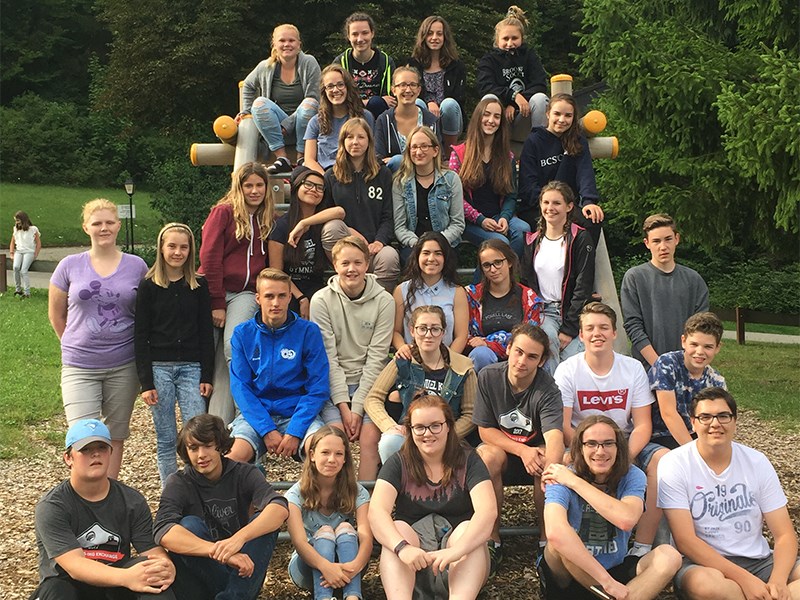Of all the experiences exchange students from Germany and Powell River shared during their time together, poutine was the most difficult to explain. The unique Canadian cuisine was challenging to describe, according to 16-year-old Brooks Secondary School student Breanne Werner.
“It was so weird at first to talk to someone who can't really speak English,” said Werner, who is currently in grade 11. “We tried to describe gravy and it was the hardest thing because we were trying to explain poutine.”
The solution was translating the idea of gravy and applying it to meat sauce.
“I tried it and I love it,” said 14-year-old Marie Diesenberger, a grade 10 student who had never been outside of Europe before coming to Powell River.
Brooks has been exchange partners with Immanuel-Kant-Gymnasium, a school in Tuttlingen, Germany, every second year since 2009. Brooks students travelled to Tuttlingen for two weeks last July; German students made the return trip in October.
Werner and Diesenberger were among a group of 32 participating students, 16 from Brooks and 16 from Tuttlingen.
Developing new connections within their own schools while adding new relationships with counterparts from across the ocean is one of the more gratifying returns of the exchange, according to Maranda Burnikell, the Brooks teacher involved with the program.
“To watch and see the kids connect with other kids in Canada and in Germany is really cool to see,” said Burnikell. “The friendships were made across cultures.”
Promises of lasting friendships were made prior to the German students leaving Powell River for home on October 29.
As much as the students from 8,000 kilometres apart became close throughout the exchange, Werner said she also found out more about her fellow students at Brooks.
“I know a lot of the people in this exchange but I've never really become friends with them,” said Werner. “We became a lot closer going to Germany together and doing all of these excursions, so I'm actually becoming friends with a lot more people in our school as well as in Germany.”
Werner admits to knowing only a few words of basic German, such as hello and thank you, but Diesenberger is fluent in English.
“I love the English language,” said Diesenberger. “I really want to travel and thought it was a good opportunity to speak English with real English people and see something different than Germany. It's really worth it.”
The German students knew English more than the Canadian students knew German, so language, how to formulate sentences and share ideas, was more of a side benefit to the exchange, according to German teacher Ariane Hof, who accompanied the Tuttlingen students.
“The focus for me is to get to know a different country, get to know people who we think are culturally quite similar to what we know but are different in small things, and to realize your own culture is not the way the whole world works,” said Hof. “It changes your view of the world, your own culture and your country.”
Part of the cultural exchange focused on learning about first nations people. Hof said the idea of reconciliation is not something unfamiliar to Germans.
“If you think back to World War II, we had to come to grips with what happened and what our ancestors did,” said Hof. “We do know how that feels. The concept of making up for things in the past is not new to them but the circumstances are totally different.”
Whether German or Canadian, students were awkward when first trying to get to know each other, according to Burnikell, but that awkwardness was overcome quickly.
“Teenagers are teenagers,” she said. “It’s universal.”



